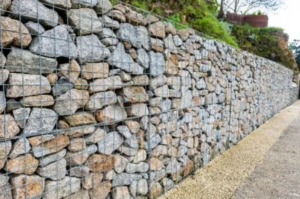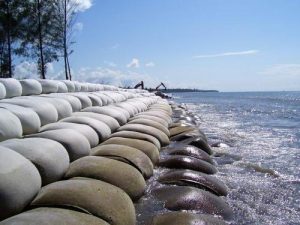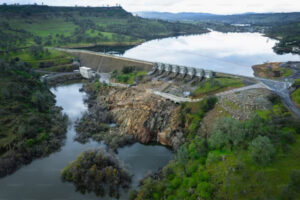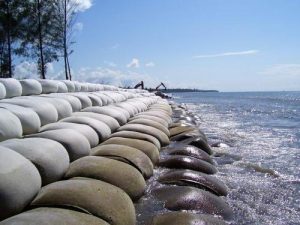Pros and Cons of Gabions: A Comprehensive Look

Before we dive deeper into what the pros and cons of Gabions are, let us first know more about what they are and how they were introduced.
So, if you are wondering if the Gabion walls are truly worth their hype, you must definitely read along, as in this blog, we would learn everything about Gabion walls, to help you make the perfect decision, and whether they are worth installing.
Table of Contents
What are Gabions?
Gabion walls are definitely a great addition to your residential landscape or garden, as they enhance the overall look as a fence, but they also act as barriers, stabilizers especially to control soil erosion.
So, they are not only beautiful, but they are extremely functional and beneficial as well.
The word Gabion is derived from the Italian word “gabbione” that means “cage” and is essentially a wire cage that can hold things together like stones, gravels, pebbles, etc. or any other inorganic material to create a fence or a wall that offers great stabilization.
Since a very long time, civil engineers have been utilizing Gabion walls to help prevent slope erosion, stabilization of shorelines, river banks, roadways, etc.
What you must also know is that the Gabion walls are never constructed in the vertical direction, rather they are stacked horizontally inclined at an angle towards the slope.
The Types of Gabion Walls
Based on their usage and pricing, the Gabion walls are categorized into the following types:
- Gabion Baskets
- Gabion Wire Mesh
- Gabion Mattresses
Pros of Gabions
- One of the major advantages of Gabion walls is that they are extremely easy to install and unlike the regular walls, they don’t take ages to build or construct them. Also, you don’t need any construction knowledge to put them together.
- They come with a greater ease of transportation of their material and are great for handling purposes too, and they are even easy to uninstall and relocate. This really helps in reducing the time to construct them to a greater extent and makes them a lot more flexible.
- They are extremely economical as compared to other traditional options available and therefore preferred by a lot of civil engineers.
- They are perfect for wet climatic conditions, and are truly a brilliant option as a retaining wall, as they have a great permeability to water owing to their porous nature, which helps them to be good for drainage and therefore, no flooding problems.
- They are absolutely hard-wearing and long lasting.
- They are not only strong but due to their malleable wire basket structures, their flexibility helps with no fractures in the walls or to the entire construction as is the problem with the traditional alternatives built with cement, brick and stones, which often break due to the environmental stress, wear and tear, constant water seepage, ground movement, etc.
- They are susceptible and resilient, and their carbon dioxide emissions are 80% lower than the other materials being used. So they are a perfect green option.
- And lastly, they do look great when put together to enhance the beauty of your residential property or landscape, or gardens.
Cons of Gabions
- Assembling the Gabion walls for a large project might really be time consuming and take a lot of time to complete the project.
- They are a little more expensive than the wooden fencing option.
- Also, for larger projects they would require heavy machinery and equipment.
Thus, now that you know what the various pros and cons of Gabions, I hope it helps you make the right decision and start your own Gabion project with the help of the right team and consultants, who can really help you build the perfect Gabion wall such as the one at Ocean Global.
FAQs
Are gabions suitable for high-flow water channels?
Yes, gabions are often used in high-flow water channels as they allow water to pass through the gaps in the mesh, reducing the risk of erosion and providing stability.
How are gabions connected to each other?
Gabions can be connected using wire or fasteners to form a continuous structure, ensuring stability and strength.
Can gabions be used for bank stabilization?
Yes, gabions are commonly used for bank stabilization along rivers, lakes, and other water bodies to prevent erosion and maintain the integrity of the banks.



